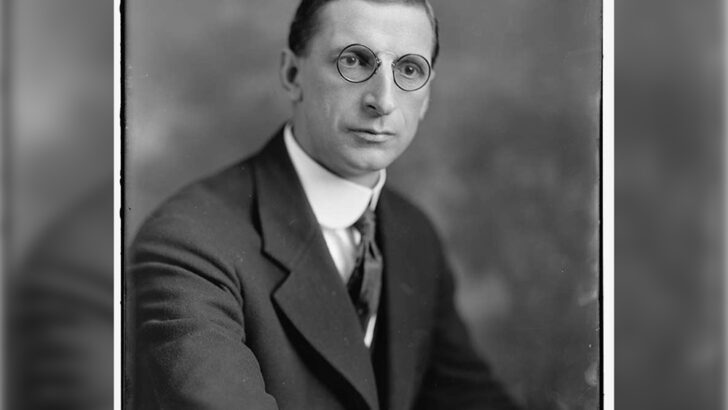Is Éamon de Valera now a forgotten figure? There is no statue or monument to the political leader who had the longest and perhaps most influential impact on 20th century Ireland. Certainly, the party he founded seldom has recourse to invoking his name at election time (or any other time). And “De Valera’s Ireland” seems often to be used pejoratively – part of that culture war on the past which is now common currency.
Examination
Yet, Mary McAleese – in many ways a progressive and a modernist – spoke almost tenderly about him last week when she launched a new book about Dev, Dangerous Ambition, by Colum Kenny. There was a soft spot for Dev the politician in her Belfast home, but it was Éamon, the child born in poverty, reared as a child labourer on his uncle’s farm in Co Limerick, that her heart went out to. His young life was lonely and motherless, and yet from such unpromising beginnings there emerged a well educated and clever mathematician, a leader whose stable stewardship made modern Ireland possible, a loving husband and a man of faith.
He was, as Mary McAleese said, heartlessly ‘othered’ because of being the child of a single mother, and the son of an absent, untraceable father”
Colum Kenny’s new examination of Dev’s early life does indeed highlight De Valera’s deprived childhood, emotionally and materially. (By the way, Colum is a cousin of mine but hopefully that does not disqualify me from describing his book.) There was real poverty in the rural Ireland to which Dev was despatched, from his American place of birth. He had to work on the farm as a young child. He was originally called George by his mother, and subsequently Eddie. He must have suffered from maternal deprivation syndrome when his mother, as a single parent (apparently deserted by Dev’s father) sent him back to Ireland because she had to go out to work. Small wonder, Colum says, that Dev’s 1937 Constitution specified that mothers should not be forced into outside employment “by economic necessity”.
His parents’ marriage has never been verified, and poignant are Dev’s own searches for traces of his father, the elusive Vivion de Valera. Dev endured cruel barbs because of the uncertainty around his family roots. He was, as Mary McAleese said, heartlessly “othered” because of being the child of a single mother, and the son of an absent, untraceable father. On one occasion a political opponent referred to Dev as “a half-breed Jew”. Ernest Blythe, founder of the Abbey Theatre, called him “some class of a mulatto”.
Calling
Dev might have become a priest – his mother wanted him to be ordained – and he was always seriously religious. But after 1916 a political life beckoned.
His mother Kate married again, and her second son, Dev’s half-brother, Thomas Wheelwright, did indeed become a priest in America.
“The child is father of the man,” wrote Wordsworth: in our childhood, our later lives are formed. What a tough and lonely childhood Éamon de Valera overcame! Yet he forged a nation. Surely he deserves a national monument.
There was real poverty in the rural Ireland to which Dev was despatched, from his American place of birth. He had to work on the farm as a young child”
*
On other political matters, Mary McAleese was stringently critical of two recent British Prime Ministers who she named only as “Boris and Liz’ (viz., Johnson and Truss). “I think I’ll give Rishi a pass, but I won’t give the other two a pass.” Rishi (Sunak), she said, was basically decent.
The President of Ireland is not supposed to be political, but the ex-President of Ireland is free to express any political opinions she pleases. Mrs McAleese has a wealth of experience in overseeing politics – maybe she should now get actively involved?
*
Nikita Hand’s mother, Debbie, said about her daughter’s ordeal: “I think she will be scarred for life. It will always be there, it will always be with her.” This, sadly, is true. The young woman will never be able to forget – and will never be allowed to forget – the events which formed part of her civil case against Conor McGregor.
She was certainly courageous to put her private life into the public realm to secure a conviction, by a jury, of rape. But all the depressing, distressing and sometimes squalid details of what is now called “partying” were reported unsparingly, and I think many of us would blanch at such full disclosure, even in the pursuit of truth and justice. And if Nikita has won a just victory in the civil court, harsher judgements of the “partying” situation have been posted on social media.
I hope she can re-make her life, and I hope Conor McGregor learns the lessons he clearly needs to learn. The feminists who say that the maltreatment of women as though they were “a piece of meat” is a result of the “pornification” of society are not wrong. Christian campaigners like Lord Longford and Mary Whitehouse predicted, exactly, how porn would degrade women – and uglify sexuality. Job done.


 Mary Kenny
Mary Kenny Éamon de Valera
Éamon de Valera 